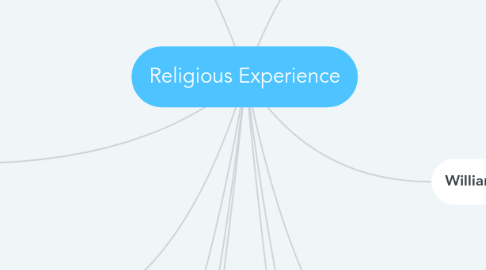Religious Experience
af Ben Thomson


1. Walter Stace
1.1. Stace defines mysticism as a non-sensuous and non-intellectual union with the divine laws.
1.2. Mysticism has nothing to do with occult, visions and voices are not mystical experiences
1.3. 2 types of mystical experience: 1. extroversive halfway house to introvertive. 2. Introvertive – sense experience is totally suppressed
2. Challenges to religious experiences
2.1. difficult to prove
2.2. unsupported evidence
2.3. subjective
2.4. cannot be understood
2.5. can be accounted for by natural explanations
2.6. some are contradictory
3. challenges from science
3.1. Generated by brain, not God
3.2. conditions and actions can bring on religious visions or feelings, e.g. LSD
3.3. wish
4. Swinburne's principles
4.1. Existence of God is probable and religious experiences make God’s existence even more probable.
4.2. Principle of Credulity: “If it seems to a subject that x is present then x is probably present”. How things seem are good grounds of belief of how things are. It cannot be shown that all claims for God are unreliable or God was not present
4.3. The Principle of Testimony: “In absence of special considerations, then the experiences of others are probably as they report them”. If reliable witnesses report religious experience then we should probably believe them.
5. Arguments for
5.1. When those who have an experience show a change in lifestyle (E.g. St Paul, Nicky Cruz)
5.2. Testimony of others who also make lifestyle changes
6. Value for faith as religious experiences can confirm faith
6.1. Good reason to believe that higher levels of consciousness exist
6.2. Can confirm faith of all types
6.3. The only certainty we can ever have comes through faith
7. Otto and the idea of the Holy
7.1. Religious experiences are with the holy
7.2. Encounters with the Holy are numinous, which Otto claims is common to all religious experiences, regardless of religion or culture
7.3. God is transcendent
7.4. Numinous feelings are not just more intense versions are normal feelings. They are sui generis unique or in a class of their own.
7.5. Numinous feelings are non-rationable
7.6. The ‘tremendous’ power can chill and numb. It inspires feelings of awe, majesty and dread, fear and terror etc
8. William Jones
8.1. union with God
8.2. God exists factually maybe exists as a collection of God-like sleeves.
8.3. Experiences teach us
8.3.1. 1. this world draws its chief significance from a more spiritual universe
8.3.2. 2. the true end of humanity is union with that higher realm
8.3.3. 3. prayer with higher realm has positive effects on this world

